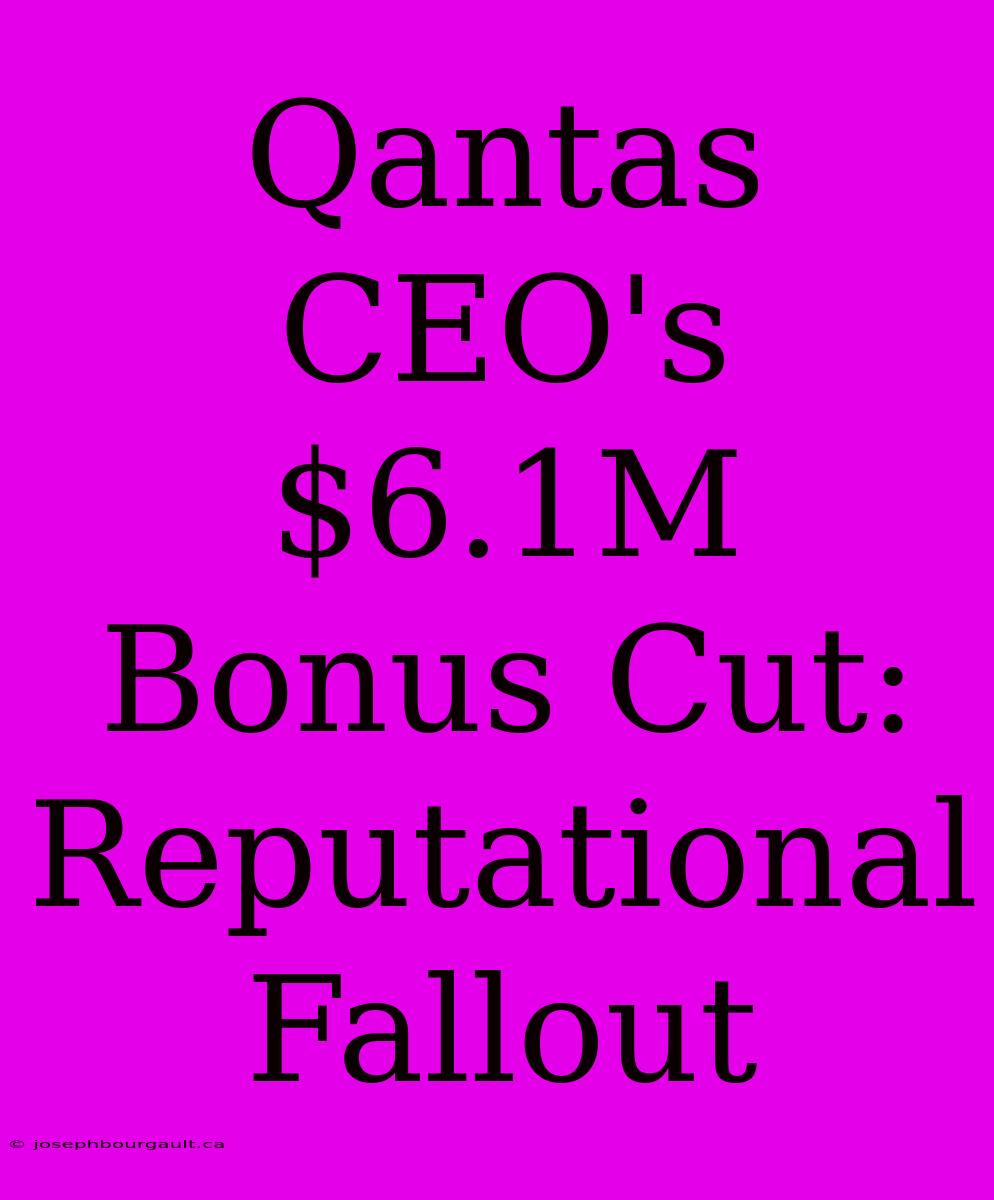Qantas CEO's $6.1M Bonus Cut: Reputational Fallout and the Bigger Picture
The recent decision to slash Qantas CEO Alan Joyce's $6.1 million bonus has sparked heated debate about executive compensation and corporate responsibility. While the move appears to be a step towards addressing public outcry and shareholder dissatisfaction, it raises crucial questions about the underlying issues driving this controversy.
A Wave of Public Discontent
The bonus cut comes at a time when Qantas is facing immense public backlash. Following a period of record profits, the airline has been criticized for its handling of customer service issues, high ticket prices, and the cancellation of numerous flights. Adding fuel to the fire, Qantas' decision to reward its executives with hefty bonuses during this period fueled public outrage and ignited a fierce debate about corporate greed and accountability.
The spotlight on Alan Joyce's bonus served as a lightning rod for this discontent. His substantial compensation package, despite the airline's troubles, was seen as out of touch and indicative of a larger disconnect between the airline and its customers.
The Public Pressure and the Power of Perception
The public pressure, amplified by media scrutiny and social media outrage, has forced Qantas to take action. The decision to cut the CEO's bonus is a clear indication that the airline recognizes the severity of the situation and the need to address public concerns.
However, the question remains: is this a genuine shift in corporate culture, or merely a tactical move to appease public sentiment?
The impact of this event extends beyond Qantas. It highlights the growing public scrutiny of corporate behavior and the demand for greater transparency and accountability from companies.
Beyond the Bonus: A Broader Perspective
The focus on the CEO's bonus, while significant, should not overshadow the bigger picture. Qantas' challenges go beyond executive compensation. They are rooted in systemic issues such as staffing shortages, operational inefficiencies, and a lack of customer focus.
A genuine solution requires a comprehensive approach:
- Addressing operational issues: This includes investing in better infrastructure, optimizing flight schedules, and ensuring adequate staffing to improve reliability and customer experience.
- Focusing on customer service: Prioritizing customer needs and feedback, and investing in training and support for staff to ensure a positive and responsive customer experience.
- Transparency and accountability: Openly communicating with stakeholders, addressing concerns proactively, and demonstrating commitment to ethical practices.
The Future of Corporate Responsibility
The Qantas saga offers valuable lessons for businesses:
- Public perception matters: In the age of social media, public sentiment can quickly escalate and significantly impact a company's reputation.
- Executive compensation needs to be aligned with performance: Bonuses should be awarded based on concrete, measurable outcomes that benefit the company and its stakeholders.
- Corporate responsibility is not just about profit: It's about ethical practices, sustainability, and contributing positively to society.
The Qantas CEO's bonus cut may be a symbolic gesture, but it serves as a reminder that corporations are being held to a higher standard than ever before. The future of business success lies in demonstrating genuine commitment to responsible practices and addressing the needs of all stakeholders.

